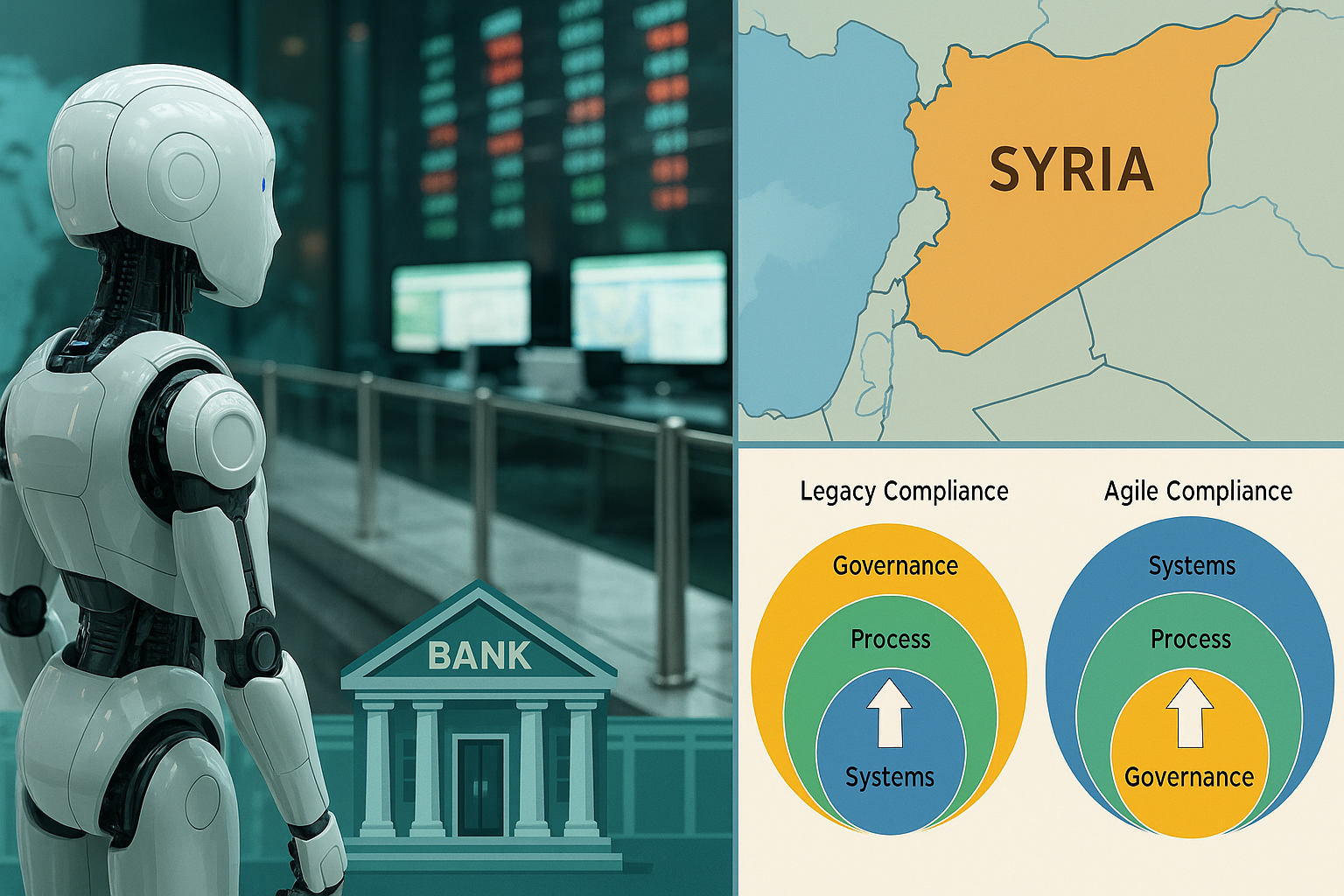Is Adoption of Artificial Intelligence Worth the Risk to my Bank?
The human brain is the most intelligent organ that has ever existed. In fact, some scientists refer to the human brain as a “natural supercomputer.”
Banking regulators for years have been focused on evaluating and monitoring rules-heavy risk-management systems to mitigate risk in banking. As the rules required to be integrated into these systems have increased, the natural supercomputer has been stretched to its limits: How can I responsibly grow profit if this much focus is required for regulatory compliance?
The Burden of Regulation
Regulators require retail-commercial banks to identify, measure, manage, monitor and report risks (the “IMMMR” approach to regulatory compliance risk management). U.S. banks of all sizes and complexity have spent billions of dollars to comply with these rules, published in thousands of pages of Federal laws, regulations and related Acts of Congress. 
With the cost of non-compliance so high (from the loss of reputation and customer loyalty, the risk of personal liability and the opportunity cost of increased regulatory examinations), banks are forced to comply at all costs to build a regulatory compliance management program that meets these regulatory expectations.
Too Much or Too Little Regulation?
The never-ending debate of too much versus too little banking regulation will continue long after we’re gone, but the natural supercomputer is meeting this challenge and has responded with new innovations to more efficiently, safely mitigate these same risks. Progressive banks and financial institutions are working actively to understand how and where Artificial Intelligence can be combined with human intelligence to improve effectiveness and reduce operational risk. When compared to the cost of compliance, the cost of not embracing technological innovation is potentially much, much higher.
Innovative financial technology companies are proactively engaging prudential banking regulators at the State and Federal levels to establish and participate in FinTech-regulatory sandboxes to validate and prove the worth of AI-based applications.
The US Banking System is a major contributor to Global Banking Stability
As we’ve all seen over the past 10 years, the U.S. banking and financial system is a major contributor to the stability of the world banking and financial system. New, more efficient AI-based software approaches exist to improve regulatory compliance processes and allow banks to measure, monitor and report (three-fifths of the regulator-required IMMMR approach).
With assistance from AI-based systems, banks can now spend more time focused on directly mitigating the risks many of these regulations were created to control in the first place. A winning approach for all stakeholders involved in our nation’s banking and financial system.
The Need for Leadership
With more than 25 years of experience in advisory and consulting capacity management and in general management, senior leadership and project management roles for banks, broker-dealers, asset management firms and others in the financial services industry, I have seen some of the most influential leaders in the banking and financial services system live and die by their ability to make hard decisions.
The most successful of those leaders are disciplined enough, balanced enough and innovative enough to make the hard decisions while still maintaining consistency with their bank’s core values.
Regardless of the cost, if a bank governs a process that effectively mitigates risk, regulators will be happy. However, if a bank governs a process that effectively optimizes sustainable profitability but also effectively mitigates risk, all stakeholders will be happy (including regulators, bank leadership, bank employees, customers, shareholders, vendors and the community around them).
Innovative leaders with vision and an understanding of the transformational power of Artificial Intelligence will decide the future of their institutions. Leaders who ignore the progress which has been made to control such powerful technology will ultimately affect their bank’s agility in the market, profitability and long-term viability.
Chad K. Fooshee is a contributing author and fellow of the Agile Compliance Forum
Chad is Founder and CEO, ZipTie Advisory Group and Chief Financial Officer, AI First Alabama Global Innovation Accelerator
Posts by Tag
- big data (41)
- advanced analytics (38)
- business perspective solutions (30)
- predictive analytics (25)
- business insights (24)
- data analytics infrastructure (17)
- analytics (16)
- banking (15)
- fintech (15)
- regulatory compliance (15)
- risk management (15)
- regtech (13)
- machine learning (12)
- quantitative analytics (12)
- BI (11)
- big data visualization presentation (11)
- community banking (11)
- AML (10)
- social media (10)
- AML/BSA (9)
- Big Data Prescriptions (9)
- analytics as a service (9)
- banking regulation (9)
- data scientist (9)
- social media marketing (9)
- Comminity Banks (8)
- financial risk (8)
- innovation (8)
- marketing (8)
- regulation (8)
- Digital ID-Proofing (7)
- data analytics (7)
- money laundering (7)
- AI (6)
- AI led digital banking (6)
- AML/BSA/CTF (6)
- Big Data practicioner (6)
- CIO (6)
- Performance Management (6)
- agile compliance (6)
- banking performance (6)
- digital banking (6)
- visualization (6)
- AML/BSA/CFT (5)
- KYC (5)
- data-as-a-service (5)
- email marketing (5)
- industrial big data (5)
- risk manangement (5)
- self-sovereign identity (5)
- verifiable credential (5)
- Hadoop (4)
- KPI (4)
- MoSoLoCo (4)
- NoSQL (4)
- buying cycle (4)
- identity (4)
- instrumentation (4)
- manatoko (4)
- mathematical models (4)
- sales (4)
- 2015 (3)
- bitcoin (3)
- blockchain (3)
- core banking (3)
- customer analyitcs (3)
- direct marketing (3)
- model validation (3)
- risk managemen (3)
- wearable computing (3)
- zero-knowledge proof (3)
- zkp (3)
- Agile (2)
- Cloud Banking (2)
- FFIEC (2)
- Internet of Things (2)
- IoT (2)
- PPP (2)
- PreReview (2)
- SaaS (2)
- Sales 2.0 (2)
- The Cloud is the Bank (2)
- Wal-Mart (2)
- data sprawl (2)
- digital marketing (2)
- disruptive technologies (2)
- email conversions (2)
- mobile marketing (2)
- new data types (2)
- privacy (2)
- risk (2)
- virtual currency (2)
- 2014 (1)
- 2025 (1)
- 3D printing (1)
- AMLA2020 (1)
- BOI (1)
- DAAS (1)
- Do you Hadoop (1)
- FinCEN_BOI (1)
- Goldman Sachs (1)
- HealthKit (1)
- Joseph Schumpeter (1)
- Manatoko_boir (1)
- NationalPriorites (1)
- PaaS (1)
- Sand Hill IoT 50 (1)
- Spark (1)
- agentic ai (1)
- apple healthcare (1)
- beneficial_owener (1)
- bsa (1)
- cancer immunotherapy (1)
- ccpa (1)
- currency (1)
- erc (1)
- fincen (1)
- fraud (1)
- health app (1)
- healthcare analytics (1)
- modelling (1)
- occam's razor (1)
- outlook (1)
- paycheck protection (1)
- personal computer (1)
- sandbox (1)
Recent Posts
Popular Posts
Here is a funny AI story.
Every community bank CEO now faces unprecedented...
On May 13, 2025, the U.S. government announced...



